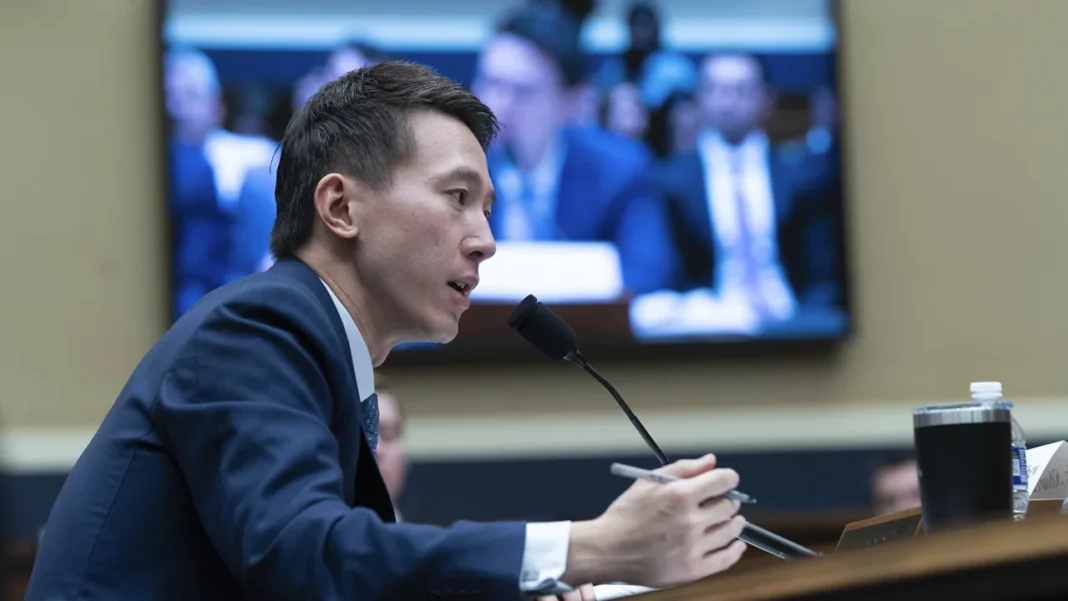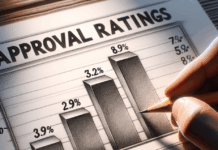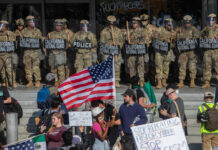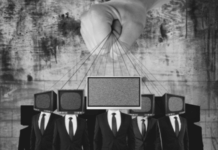Ellen Min doesn’t go to the grocery store anymore. She avoids bars and going out to eat with her friends; festivals and community events are out, too. This year, she opted not to take her kids to the local St. Patrick’s Day parade.
Min isn’t a shut-in. She’s just a Korean American from central Pennsylvania.
Ever since the US government shot down a Chinese spy balloon last month, Min has withdrawn from her normal routine out of a concern she or her family may become targeted in one of the hundreds of anti-Asian hate crimes the FBI now says are occurring every year. The wave of anti-Asian hate that surged with the pandemic may only get worse, Min worries, as both political parties have amplified fears about China and the threat it poses to US economic and national security.
“You can’t avoid paying attention to the rhetoric, because it has a direct impact on our lives,” Min said.
That rhetoric surged again this week as a hostile House committee grilled TikTok CEO Shou Chew for more than five hours on Thursday about the app’s ties to China through its parent company, ByteDance. After lawmakers repeatedly accused Chew, who is Singaporean, of working for the Chinese government and tried to associate him with the Chinese Communist Party, Vanessa Pappas, a top TikTok executive, condemned the hearing as “rooted in xenophobia.”
Chew had taken pains to distance TikTok from China, going so far as to anglicize his name for American audiences and to play up his academic credentials — he holds degrees from University College London and Harvard Business School. But it was not enough to prevent lawmakers from blasting TikTok as “a weapon of the Chinese Communist Party” and as “the spy in Americans’ pockets,” all while mangling pronunciations of Chew’s name and the names of other officials at its parent company, ByteDance. After Chew’s testimony, Arkansas Republican Sen. Tom Cotton said the CEO should be “deported immediately” and banned from the United States, saying his defense of TikTok was “beneath contempt.”
There are good reasons to be mistrustful of ByteDance given that it is subject to China’s extremely broad surveillance laws. (TikTok has failed to assuage concerns the Chinese government could pressure ByteDance to improperly access the data, despite a plan by TikTok to “firewall” the information.) And the Chinese government’s authoritarian approach to numerous other issues clashes with important American values, said many Asian Americans interviewed for this article.
But they also warned that policymakers’ choice to use inflammatory speech — in some cases, language tinged with 1950s-era, Red Scare-style McCarthyism — endangers countless innocent Americans by association. Moreover, politicians’ increasingly strident tone is creating conditions for new discriminatory policies at home and the potential for even more anti-Asian violence, civil rights leaders said.
“We are afraid that, more and more, the actions and the language of the government is premised on the assumption that just because we are Chinese or have cultural ties to China that we could be disloyal, or be spies, or be under the influence of a foreign government,” said Zhengyu Huang, president of the Committee of 100, an organization co-founded by the late architect IM Pei, the musician Yo-Yo Ma and other prominent Chinese Americans. “We want to deliver the message: Not only are we not a national security liability — we are a national security asset.”
But as the country wrestles with China’s influence as a competitive global power, caught in the middle are tens of millions of Americans like Min who, thanks to their appearance, may now face greater suspicion or hostility than they experienced even during the pandemic, according to Asian American lawmakers, civil society groups and ordinary citizens.
From ‘Kung-flu’ to national security
The heated rhetoric surrounding China has undergone a shift from the pandemic’s early days, when xenophobia linked to Covid-19 was unambiguous.
At the time, Asian Americans feared an uptick in violence inspired by derogatory phrases such as “Kung-flu” and “China virus.” That language had emerged amid then-President Donald Trump’s wider criticisms of China, which had led to a damaging trade war with the country. It was against that backdrop that Trump first threatened to ban TikTok, a move some critics said was an attempt to stoke xenophobia.
DISCLAIMER: The content of Pro Liberation is firmly opinionated and is not meant to be interpreted as official news. We glean facts and quotes from mainstream news websites and abridge its meaning for readers to relate. We do not indulge in misinformation, conspiracy theories, or false doctrine but choose to express our right to free speech as citizens of this country and free born under God the Creator. We represent Nu Life Alliance Inc. a non-profit organization in the battle for social and economic justice. Donate to our cause at the following link. DONATE














